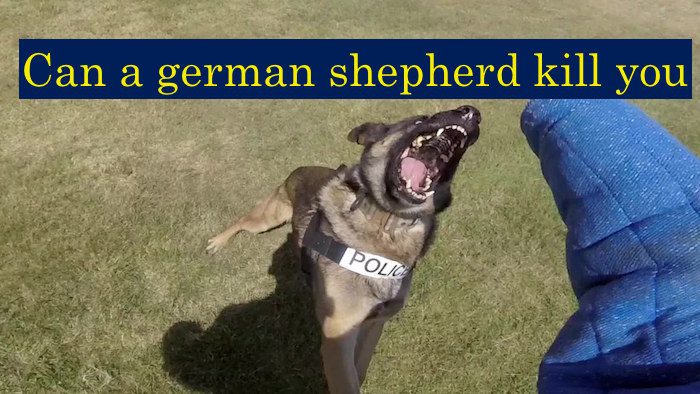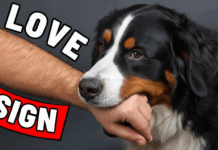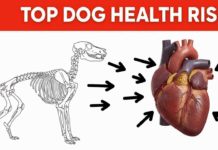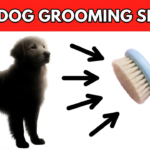Last Updated on May 2, 2021 by Dogs Vets
Can a german shepherd kill you?
A lot of people keep asking the question, “Can a german shepherd kill you?” One of the most commonly dog breeds used by the military and the police force is the German Shepherd. They are loyal, intelligent, and resilient dogs that love to please their humans.
They are also strong, tough, and intimidating in appearance and behavior. Because of their combat service experience, GSDs tend to be viewed as an inherently violent breed, which can cause people to worry about their family’s safety.
The most important question is: Can a German Shepherd kill you?
Yes, a German Shepherd can kill you. But, to be fair, almost any dog can kill you. However, that doesn’t mean they are just waiting for the opportunity to do so. While dog attacks aren’t that common, it’s a good idea to know what to look for and the right way to deal with one if it happens.
In this post, we’ll explore why a GSD may attack, what the warning signs might be, how to protect yourself and more.
Is a German Shepherd a dangerous dog?
This can be a loaded question with a variable answer. German Shepherds are powerful dogs with the strength to hurt other creatures or humans. But that doesn’t mean they will go out of their way to do so.
Many factors contribute to an individual german shepherd’s predisposition toward violence as opposed to cuddling.
As with all types of dogs, the most important thing to keep in mind is that the way a dog was raised as a puppy will influence its behavior as an adult.
So, if a dog was properly trained and raised in a loving home, it is much more likely to end up being a charming and friendly companion.
However, if a dog grew up in a less-than-ideal situation and did not receive proper training, his behavior will reflect that. That could even mean aggression toward people.
View this post on Instagram
It’s is very important that all German Shepherd puppies must be properly socialized and receive proper training from the beginning.
Bloodlines and health
Reputable German Shepherd breeders will look for specific desirable traits to pass on to future generations.
While the breed should have a certain level of aggressive ability, it is important for breeders to ensure that loyalty and trainability are built into the line. Too much aggression in a lineage can invite disaster.
Health problems can also affect a German Shepherd’s behavior. A generally sweet and affectionate GSD can become bitter and aggressive when in pain or not feeling well.
Can a German Shepherd harm a person?
German Shepherds are very large dogs with a strong build and were bred to herd and protect livestock. That means that if this type of dog wanted to hurt someone, it could. Fortunately, most GSDs have no desire to harm their human companions.
However, combine poor breeding or poor health with a lack of proper training in a German Shepherd dog, and you have a potentially volatile situation. A poorly trained or sick GSD can hurt a person, but this can be avoided.
We cannot emphasize this enough: A good training from the very beginning is the best way to prevent a German Shepherd from developing aggressive tendencies.
Could a German Shepherd fatally kill someone?
As much as I would personnaly love to say no, the fact is since German Shepherd dog breeds were originally bred as herding dogs to protect livestock from predators, they could inflict pretty serious damage in the right situation.
And by “right,” I mean worst-case scenario. The German Shepherd Dog has a very powerful jaw, with sharp teeth, and strong muscles, all aspects capable of mortally wounding a human being.
Does this make all German Shepherds dangerous? Not at all! One bad-tempered German Shepherd should not make the rest look bad.
Are German Shepherds more violent than other breeds? Same answer: just because a handful of GSDs were not properly trained or grew up in a bad situation does not make the rest dangerous or more violent.
Given a sufficiently shady background, any breed of dog could be dangerous. The fact that German Shepherds had a bad reputation years ago does not mean that the entire breed is bad.
However, because of their size and muscular build, they can obviously be more lethal than, say, a small Pomeranian out for blood.
Understanding the potential for aggression or danger in an animal is not the same as expecting that animal to be violent or dangerous.
What to do if a GSD attacks you
While it is unlikely that a well-trained German Shepherd will attack you, it is smart to arm yourself with knowledge.
If you find yourself in a very bad situation of an angry German Shepherd dog that lunges at you with obvious bad intentions, what exactly would you do to protect yourself?
First of all, don’t always panic. I know the crazy thought of any dog trying to attack you is already scary enough, but when a dog that has been bred specifically for protection and intimidation attacks you, you may have the instinctive reaction to run or fight back.
I can 100% assure you that this is the worst thing you can do. I hope you do not try to run away or fight off a charging German Shepherd with all my heart.

Instead, watch for warning signs, take appropriate action and get to safety as quickly as possible. Here’s how.
How do you know when a GSD is about to attack?
Aside from the obvious signs like growling, gnashing teeth, and lunging at you, how else can you tell when a GSD might attack?
A dog emits calming signals to help defuse certain situations.
Dogs have developed a set of calming signals over time that they use to reduce the chances of aggression and conflict with other dogs, their human companions, and other species they may be living with. Learn to spot these signs on an aggressive dog, and you might avoid confrontation altogether.
Unfortunately, there is not always a 100% sure way to know when a GSD might become very aggressive because every dog is different, but for the most part, a German Shepherd Dog might:
- The dog will freeze. Their body will become stiff and sculpted. They will look alert and unflappable at this point, ready to charge.
- The tail will be close to the ground. No wagging or playful curls, just a sunken, immobile tail.
- The eyes will enlarge, possibly even showing white.
- Both ears will return. They are likely to keep their ears flat, immobile rather than twitching and listening to sounds around them.
- The fur on the back of the neck and along the spine will bristle and bristle. This can make the dog appear much larger.
- The head may dip a little, but not all dogs do this.
- The dog may begin to growl or bark, but not all German Shepherds will vocalize before attacking.
Take note of Aggressive Signals
Signs of aggression in dog body language can be easier to read than some of the more subtle signals, such as calm signals. These dog expressions warn the other dog or person to stop what they are doing, or they will defend themselves, their territory, or possessions from the perceived threat. Signs of aggression in dog communication can include both verbal and nonverbal signals.
If the other dog or the person receiving these signals can interpret them correctly, they may respond with calming signals and diffuse the situation. When the receiver is unable to read the dog’s body language displayed as signs of aggression and responds inappropriately, physical violence may ensue.
Aggressive dog language – Verbal:
Growling
Barking
Air snapping
Dog growls at another dog or person.
Aggressive Dog Body Language – Nonverbal:
- Showing teeth
- Ears pinned back, flat against head or pointed forward
- Hair standing on end
- Hard stare
- Head posture lowered
- Stiffness or freezing of the body
- Lips peeled back, curled lips
- Tail erect and quivering or straight and not wagging
- Whale eye: wide open eyes with lots of white.
- Small dog toy terrier in clothes shows teeth on a large Dalmatian summer in the park for a walk
Preventing dog bites
It’s important to know that dogs can bite no matter how much they love us! In the vast majority of incidents where dogs bite children, the dog is familiar to them. This may seem surprising, but it’s really not. We tend to trust that our dogs will always do the right thing and, at the end of the day, forget that they are animals.
We also often ignore the subtle warnings a dog gives us before biting through dog-specific communication signals. A snap or bite is the dog’s way of saying, “I have told you many times that I am not happy with what you are doing, so now, finally, back off,” but it may already be too late for the child. As a result of the way children interact with dogs, most bites end up in their faces.
Interpreting dog language
When dogs vocalize with barks, growls, yelps and howls, they may be sending a number of different messages that can be happy, demanding, angry or questioning. Try to recognize the difference between the “yelp” when you bring out the lead, the excited bark when the doorbell rings, and the nervous bark when your dog hears something unusual.
In addition to his vocalizations, understanding your dog’s behavior and communication signals is key to interpreting what your dog is trying to tell you. These nonverbal signs and signals can be much more difficult for us to interpret than your verbal expressions. To help you gain a basic understanding, we’ve put together some examples of common dog body language signals and explain what they mean.


Calming and stressful signals
We all know a dog emits calming signals to help calm a situation.
Calming signals are often referred to as stress signals, and although many of these signals are the same, their interpretation also depends on the actual context or situation in which they occur. The terms “conflict signals” and “displacement signals” also overlap.
For example, You are with your cute puppy in a café. A stranger approaches you, and your hand reaches out to pet the puppy. Your puppy yawns and turns his head away. This is a very clear sign of stress, as your puppy is not happy with a stranger coming over and approaching.
The stranger continues to reach out, and your puppy licks the stranger’s hand. Now your dog uses appeasement behavior to indicate that he is not going to cause harm in any way and also to indicate that he wants the stranger not to cause any harm. Despite these calming signals, your dog may not be happy with this interaction.
Another example: Maybe you’re standing at a bus stop, and you ask your dog to sit when a bus approaches. Your cute dog puts his nose to the ground and sniffs even though nothing is interesting. Your dog may feel somewhat overwhelmed with the approaching bus and may not sit because he doesn’t think it is safe to do so. Instead, he decides to sniff the ground.
It’s almost like when a person is engaged in a complicated conversation and opens his phone to check Facebook or watch youtube videos instead of participating.
If a normal dog misses appropriate early socialization opportunities as a puppy, he may not be able to send calm signals or interpret those sent by another dog. The dog may also have difficulty meeting and greeting other dogs effectively.
Calming signals include:
- Rolling over
- Licking lips
- Yawning
- Sniffing the floor
- Looking away
- Moving slowly and deliberately
- Distracted sniffing
- Sitting or lying down
Examples of calming signals:




What to do when a German Shepherd becomes aggressive
Don’t look the dog in the eye. For canines, looking them in the eye is considered an aggressive act. This is another part of a dog’s body language that you should be aware of to help avoid misunderstandings.
If you stare into the eyes of an angry German Shepherd, they may take it as a challenge. By avoiding eye contact, you are telling the dog that you are not interested in fighting.
While avoiding eye contact, slowly turn your body to the side. If the dog intends to lunge, you don’t want the softer parts of you to take the brunt of the attack.
If you turn sideways toward the dog, the harder outer thigh, leg and torso will be in its line of sight instead of your stomach or groin.
At this point, assuming the dog is not actively attacking you, ignore it completely. If you ignore the dog, you become a boring, non-threatening target, and the dog may also lose interest.
Always keep your limbs close to your body at all times. German Shepherds have been known to point high and grasp the limbs. If your arms are crossed and inaccessible, you may think twice before attacking, or at least limit the damage you could receive.
View this post on Instagram
Move slowly away from the dog. Sometimes a dog may become aggressive because it is protecting something. It may be a place, an object or even another person.
By moving away from the vicinity of the dog and whatever it is protecting, the dog may lose interest and choose not to pursue.
What to do when someone unleash a German Shepherds on you?
For the most part, an unleashed dog running at you barking and growling is not usually coming in with the intention of biting you. Most likely the dog is just trying to tell you to leave the area.
But if you start to become agitated and run away, the dog’s hunting instincts will kick in and chase you.
Sometimes, however, even if you don’t panic and try to avoid the interaction with the above tips, the dog may attack anyway.
If none of those tips work and the dog still decides you are worth chasing, you are not powerless. This is where your big human brain will come in handy.
Always try to Stay calm
Again, stay calm. A fierce dog can be scary, but panicking will definitely make the situation worse. Dogs can sense your emotions and your body’s response to stress.
The more stressed or scared you are, the more agitated the dog will become. Slow, smooth, fluid movements are key.
Can a german shepherd kill you : Don’t try to run
Don’t run, no matter how tempting it may be. While, for the most part, moving quickly away from danger would be helpful to you, any quick movement will only aggravate the dog further and cause it to attack you.
Move slowly and purposefully, keeping your eye on the dog and another eye on its escape route.
Try to be quiet
Do not yell, scream or make loud noises. Yelling and screaming, while it might alert another person to your location, will also further aggravate the dog.
You will simply appear to the dog as another squeaky toy, and believe me, you don’t want that.
Find a Barriers
Try moving slowly behind something sturdy. While you don’t want to walk away quietly with an angry GSD nipping at your heels, you also don’t want to run at full speed.
Go at a steady pace toward something sturdy, such as a wall, a small building, a car, or even a picnic table or trash can. Put something between you and the dog.
Shielding
If you don’t have anything sturdy to block with, you can use a flat object to make a barrier between you and the dog. This could be a chalkboard, briefcase or large book, if that’s all you have.
German Shepherds like to grab things and hold on to them, but if the surface is hard enough and flat enough, they will stop gripping.
Make sure the object is close to you and not extended toward the dog. If the object is sticking out, the dog could go around it or under it and get to you.
If you do not have a flat object to act as a wall between you and the dog, then any object can be used to direct the dog’s jaws towards.
A purse, backpack or shopping bags can work, although they are not ideal. No matter what it is, anything is better than those jaws grabbing you.
What to do if a German Shepherd hits you down
If the dog has slammed you to the ground, it could be scary. Don’t shake; that will only bring your arms and legs closer to the dog’s mouth.
Instead, curl up into a ball and use your arms to protect your neck and head. Doing this limits the damage the dog can inflict on any vital parts. As long as you remain still and quiet, the dog may lose interest.
Do german shepherds bite their owners?
This is a yes and no answer, and has a lot to do with dog psychology and training.
Dog psychology
Sometimes a puppy will bite lightly or bring his mouth close to someone, but not actually draw blood. This is not so much a vicious bite as it is what is called “nipping,” and it is a normal part of the puppy stage.
It happens when they are feeling playful. Usually a dog’s parents or siblings will teach them not to do this by yelling in response to tell them it hurts or that they don’t like it. The puppy thinks, “Hey, maybe I shouldn’t do this,” and instead finds other ways to play.
Training
Unfortunately, not all GSD parents teach their puppies not to bite or chew. That means it’s your job. Since GSDs have very strong jaws, this playful biting and chewing could be painful for humans.
Even if it’s not painful at first, it won’t be long before it is. If they are not taught quickly that the mouth is not right, they can develop a bite problem later on that can lead to serious injury.
View this post on Instagram
Can a german shepherd kill you? – Things to consider
Before getting your German Shepherd to stop biting your arms and hands, it would be helpful to know exactly why he does it.
Below, I’ll mention a few particularly helpful things you may want to consider.
When your dog started doing it
It would be helpful to consider when your dog started biting your arms and hands. If your dog has always done it, it is more likely that it is a natural behavior and you just need to train your dog not to bite your hands.
Whereas, if he started biting them all of a sudden, it would be more likely that there is something else that is causing it.
Some things to consider would be:
- If you moved home
- If someone was aggressive about it
- If someone moved in
How old is your German shepherd dog?
If your German Shepherd is still young, he is much more likely to bite your arms naturally because he is teething.
However, it would be important to train him not to bite your arms and hands so he won’t do it when he is older.
If he is an adult, he most likely never learned not to bite your arms and hands.
However, if he started doing it suddenly and didn’t do it in the past, it might suggest that something is wrong, to the point that it hurts.
How aggressively he bites your arms and hands?
It would also be helpful to consider how aggressively your German Shepherd bites your arms and hands. If he does it aggressively by showing his teeth, growling and his fur stands on end, then it would be a more serious problem and you should seek the advice of a veterinarian or a certified canine behaviorist.
Whereas, if he doesn’t bite them hard and bites them with his mouth, then it would be something you would want to stop through training.
When and where he bites your arms
Considering when and where he bites your arms and hands would probably go a long way in determining why he does it. If he tends to bite your hands when it’s time for a walk, he’s probably trying to remind you.
If he bites your arms and hands every time he gets excited, he probably does it naturally, but he hasn’t learned that it’s not okay to bite his arms.
How to get your German Shepherd to stop biting your arms and hands.
There are a number of things you can do about your German Shepherd biting his arms that I will mention below.
You can check out the book Training Your German Shepherd on Amazon for more tips on how to train your GSD.
Train him not to bite
The first method you can try is positive reinforcement training. This is where you reward the behaviors you want to see from your German shepherd so that he learns to give them a positive association.
To use the method to stop your dog from biting, you must:
- Stand up and stop him from biting your arms or hands by leaving the room if necessary.
- Wait a few moments and then return your attention to him and then prevent him from biting them again if he starts biting.
- Repeat the above until he learns that biting causes him to lose attention.
- Reward him with a treat when he does particularly well.
You can watch the video below to see more on how to get your German Shepherd to stop biting your arms with positive reinforcement training along with more tips.
FAQ’s
Why would a GSD bite its owners?
Despite the dog breed’s history and original purpose as livestock guardians, German Shepherds are very affectionate with adult and kids.
They tend to form a strong, unbreakable bond with their owners. As such, they do not tend to bite their owners.
Jealousy factor
While they generally avoid biting their human owners, they do have the problem of becoming jealous, which can cause them to growl or bite another person or dog that approaches their owner.
Inappropriate training
Unfortunately, not all GSDs are raised equally; some German Shepherds are raised in a very bad place, with abusive owners who do not properly train their dogs. Some irresponsible owners will even try to train them to be guard dogs and bite people on purpose, which is never okay.
Unless you are a professional dog trainer, you should never try to teach a dog to guard your home. It would be best if you never taught your dog that biting people is okay.
GSDs have very powerful jaws and can inflict quite serious damage if given the opportunity.
As long as you carefully train a German Shepherd puppy from a reputable breeder, you should have no problem with biting.
However, if you decide to adopt a GSD that comes from an unfamiliar home, you run the risk that the dog will not be properly taught.
I’m not saying you should never adopt a dog. It’s just that you should be aware that you may have your hands full teaching them that biting is a no-no.
Boredom
GSD’s are very active and require lots of playtime and exercise. A frustrated or bored German Shepherd may resort to biting to get attention or release some pent-up energy.
As long as you have properly trained your GSD that biting is not acceptable at any time, that it is okay for them to pet other animals and be around other people. You have given them plenty of exercises, and you should have a recipe for a happy dog.
It’s teething
If it’s a puppy, chances are the reason he’s biting your hands or arms is that he’s teething. When they are teething, their gums will hurt, and biting and chewing on things helps soothe their gums. That is why the GSD tend to bite and chew on things a lot when they are little puppies.
Another possible reason could be that German Shepherd puppies explore and interact with the world with their mouth and nose as much as with their eyes. As a result, he will bite your hands a lot because he interacts with them.
If your German Shepherd dog is still a small puppy, you must take the time to train your dog not to bite his hands and behave the way you want him to. You can do this using the tips listed below.
If your German Shepherd is no longer a puppy, it is likely that the reason he is biting your hands is that he never learned that it is not okay to bite when you are a puppy.
If you didn’t train him not to bite his hands when he was a puppy or adopt him, then it’s not too late for you to train him to stop. You can do this by following the tips given in a few sections below.
Excitement
Your German Shepherd is biting your arms and hands because he is excited and is trying to show his excitement.
This would be more of a habit if your dog only seems to bite your arms and hands when you are about to do something he enjoys, such as going for a walk.
It would also be more likely if he tends to show other signs of excitement by biting his arms.
In this case, you could also try to prevent him from biting your arms or hands by standing up and turning around or leaving the room. Then, you would reward your dog when he shows signs of behaving the way you want him to. Doing this will teach him that biting his arms does not get him what he wants.
He is exploring
Dogs interact with the environment using their mouth and nose as much as they do their eyes and even more so when they are puppies.
The reason your German Shepherd has been biting your arms and hands could be because he is interacting with them. This would be more likely if it is a puppy. Even if this is the case, it will be important to get him to stop by training him not to bite his arms or hands.
What to do if your GSD has a history of biting people
If you’ve come to this article after your German Shepherd has already started biting people, it’s not too late.
Before you break out the choke or shock collars, or even give up altogether, what if I told you that there may be a way to teach even the most stubborn GSD not to bite people without going to the extreme?
Age matters, but only a little
Generally, the younger the dog, the easier it is to train. However, that doesn’t necessarily mean that older dogs are a lost cause. Older dogs may be more difficult to train out of old habits, but it’s not impossible and should definitely still be tried.
Positive Reinforcement
Dogs tend to learn better with positive reinforcement and rewards rather than punishment and negative outcomes. Dogs also like repetition, so repeating the same commands with equal time between giving the dog a treat and praising him after a successful act is crucial.
Never hit or yell at the dog
You should never violently discipline a misbehaving dog. The saying “violence begets violence” applies very strongly in this case. By hitting your dog, you may decide that you should get a taste of your own medicine.
The same applies to yelling or scolding harshly. This may make your dog fearful, in which case he will continue to bite out of fear for his safety.
Can a german shepherd kill you? – Get professional help
Through proper & rigorous training, almost any dog can overcome its tendency to bite. But it’s not always possible on your own. If you are dealing with a stubborn German Shepherd, you should seek professional help for specialized training.
Is it right to deal with a violent GSD?
Sometimes, when an owner has a violent GSD and doesn’t think they can train it independently, they may think about putting their dog down.
However, this is not always the right move. Even if it may seem hopeless at the time, you should always be sure to exhaust all other options before even considering putting a dog down.
Why? Because euthanizing a dog will always solve the problem immediately, it will also end the dog’s life without knowing if it could improve the dog’s life. Once the dog is dead, there is no going back.
Now, I’m not saying there is never a right time to consider putting down a GSD, but if there is nothing wrong with the dog, physically or mentally, maybe all the poor dog needs are compassion and specialized training. Don’t give up too soon!
Final Conclusion
Although dog attacks don’t happen very often, there is nothing wrong with arming yourself, knowing the right way to deal with an aggressive German Shepherd.
Hopefully, this article has given you an idea of dealing with an aggressive GSD and what your warning signs might be. After all, it is far better to avoid the situation than to find a way out.
See also: 7 shocking facts about Tick Bites on Dogs (Cause, Treatment + Prevention)
Fact Check
We strive to provide the latest valuable information for pet lovers with accuracy and fairness. If you would like to add to this post or advertise with us, don’t hesitate reach us. If you see something that doesn’t look right, contact us!
Reference: Germanshepherdsowner.com

















